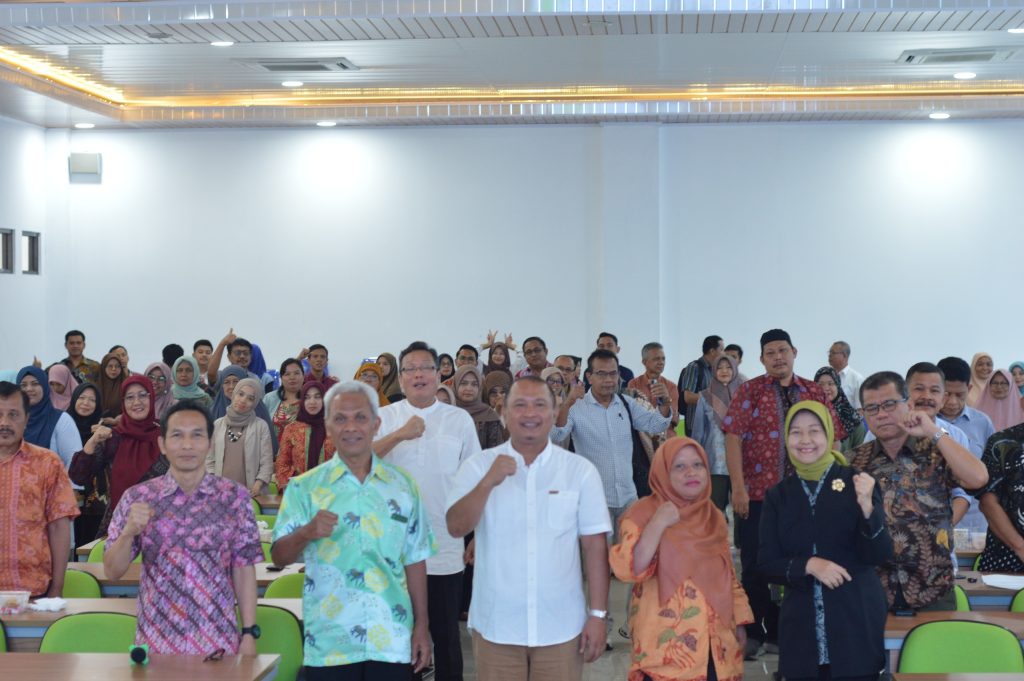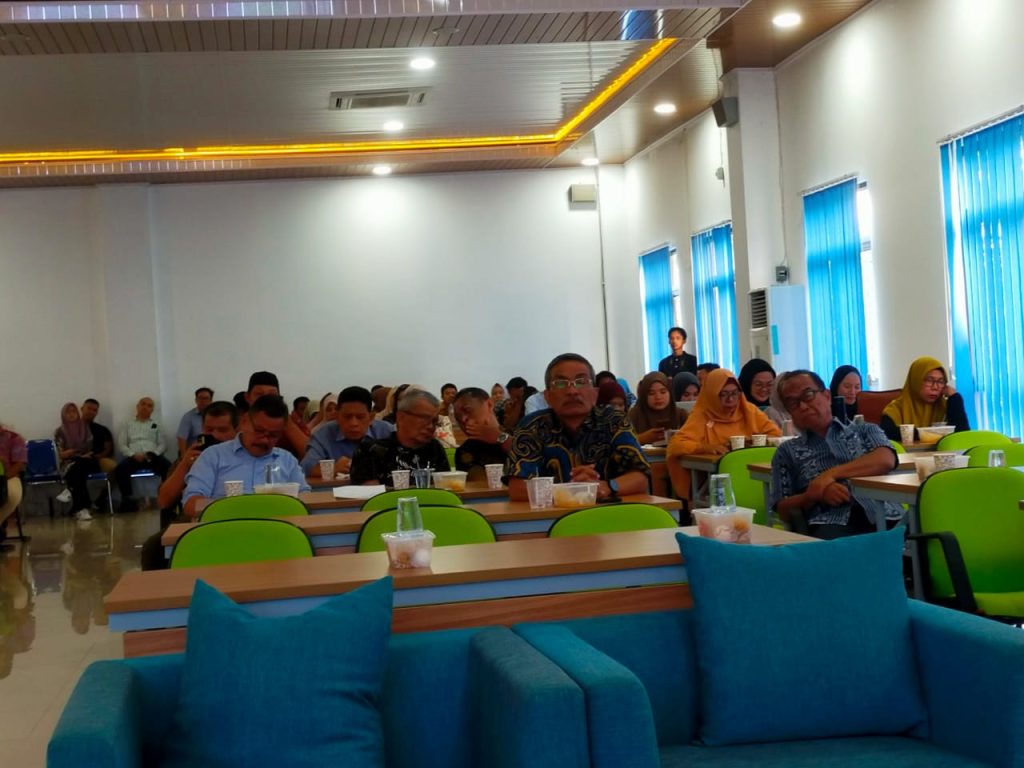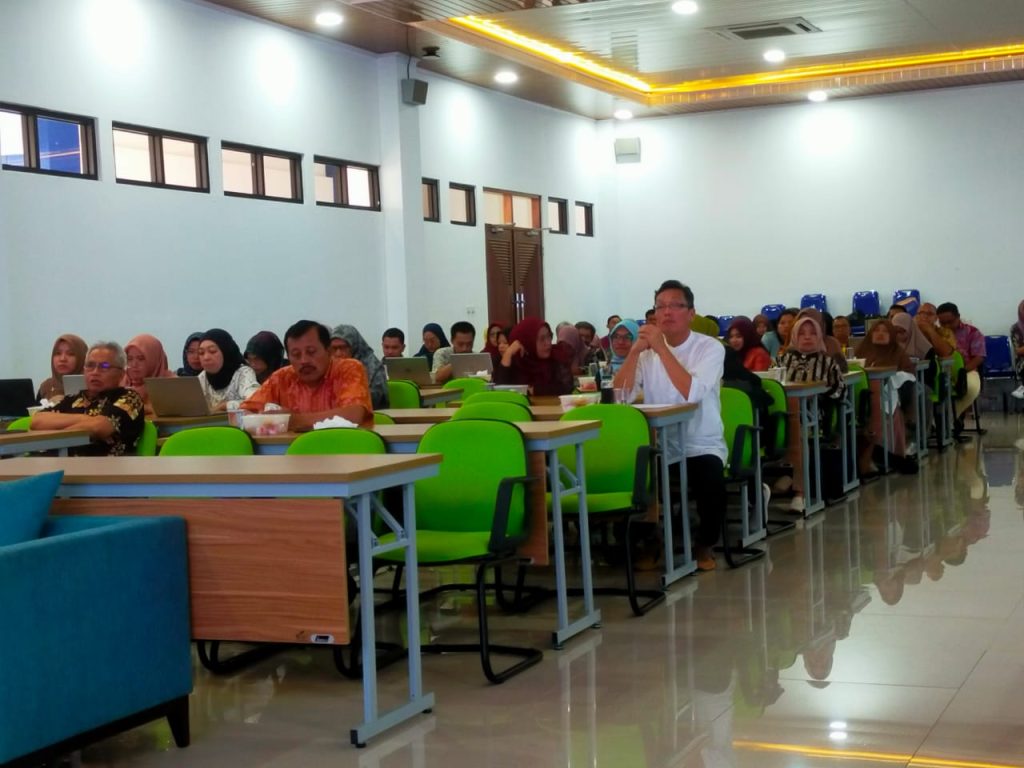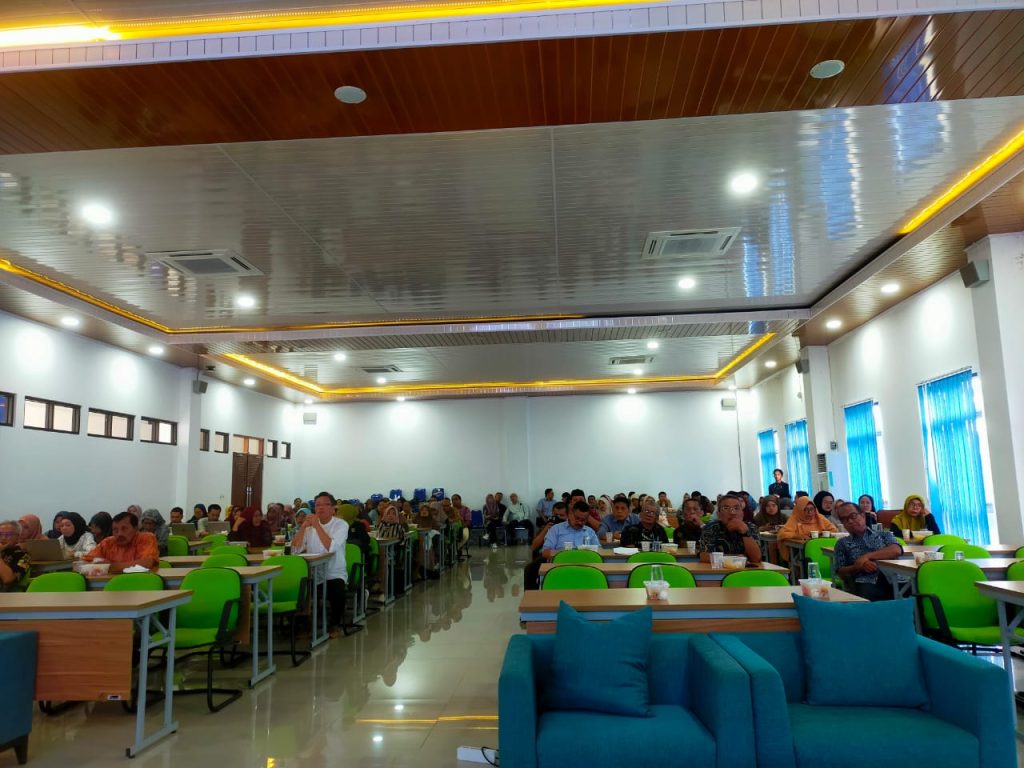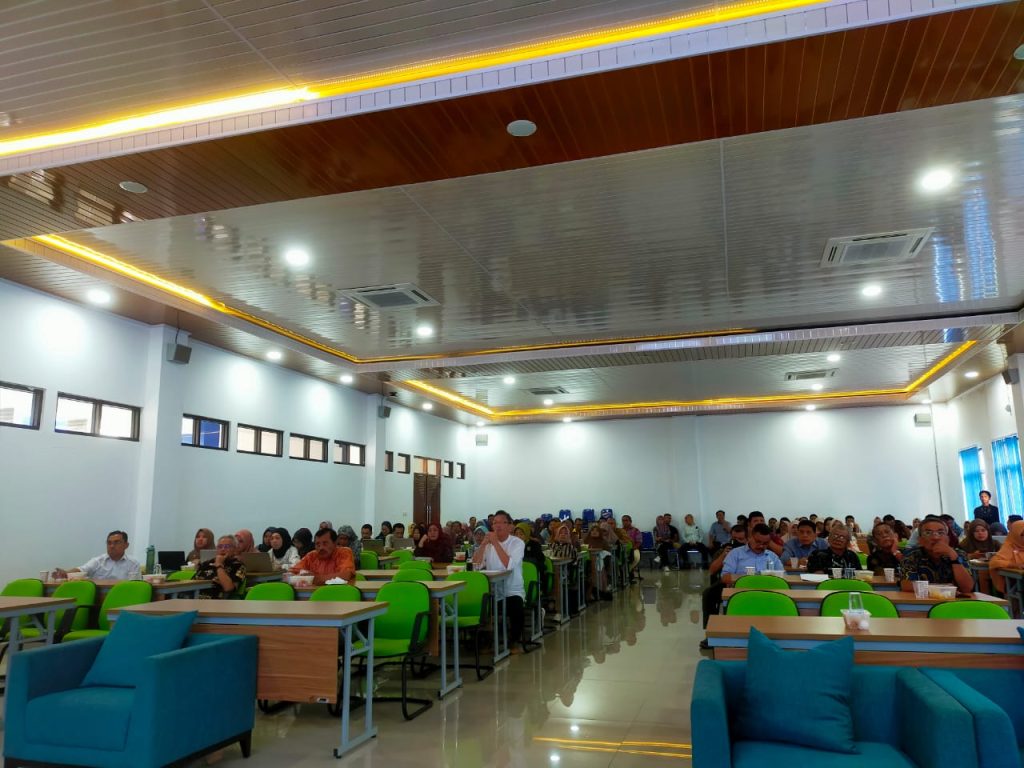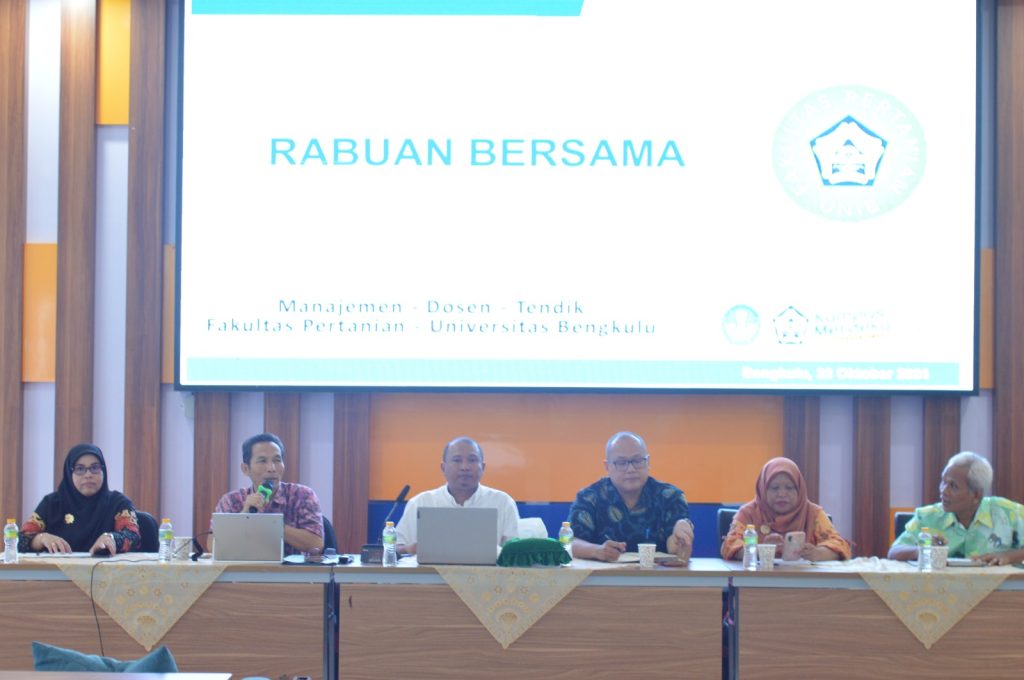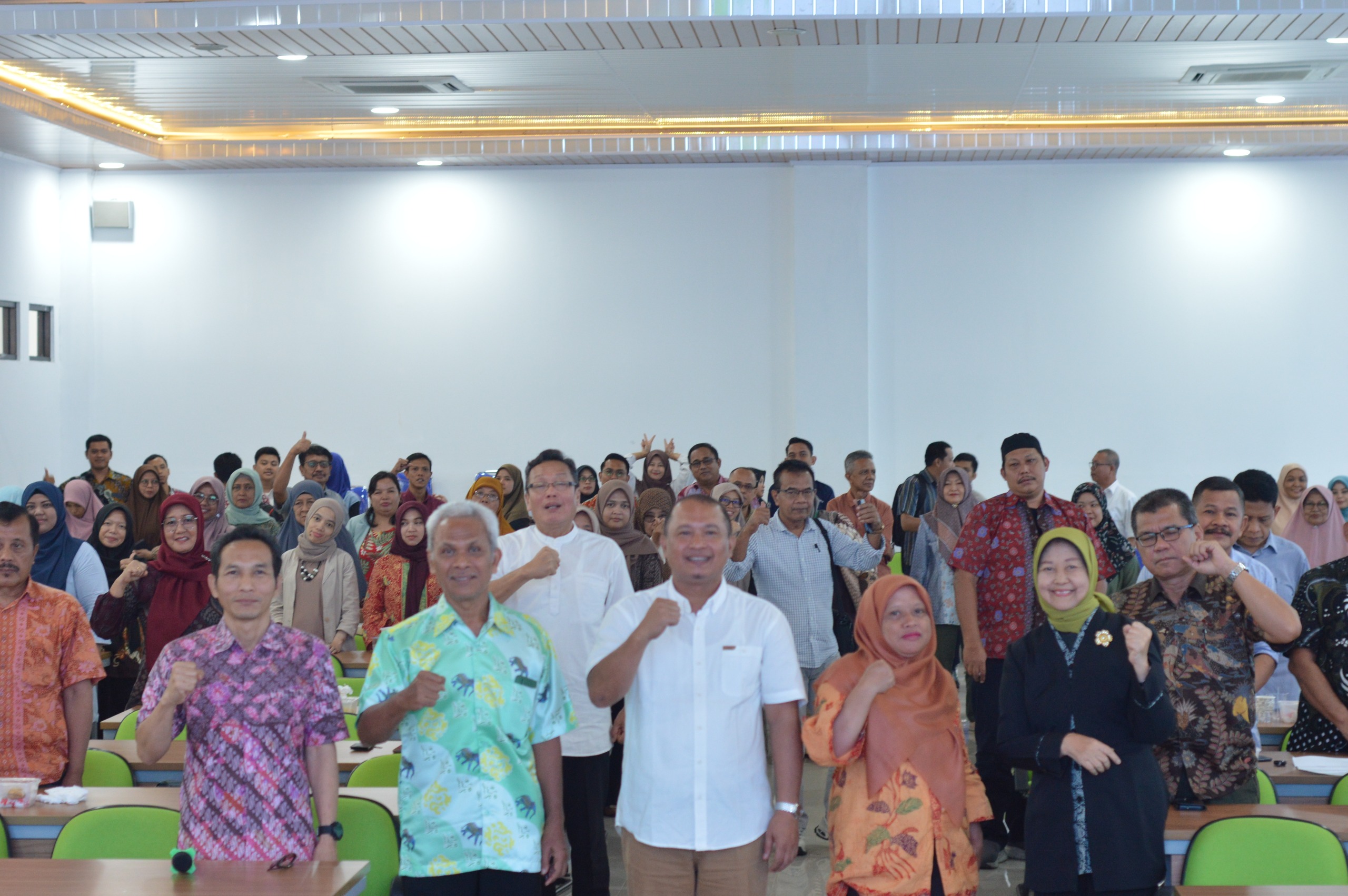
The Faculty of Agriculture Holds a “Rabuan Bersama” Meeting
On Wednesday, October 23, 2024, the Faculty of Agriculture at Unib held a “Wednesday Gathering” meeting in the Main Meeting Room of the Unib Integrated Service Building. The meeting, which began at 10:00 a.m. and continued until noon, was attended by approximately 150 participants, including the Dean, Vice Deans, Chair of the Faculty Senate, Coordinators and Sub-Coordinators of the Faculty, Department Heads, Coordinators of Undergraduate, Master’s, and Doctoral Programs, lecturers, and administrative staff from the Faculty of Agriculture at Unib.
The meeting served as a forum for social interaction and faculty performance reporting and an opportunity to introduce 14 out of 15 newly appointed civil servant lecturers who have recently joined the Faculty of Agriculture at Unib. The new lecturers were introduced individually to all meeting participants, marking their initial step towards contributing to Unib’s academic community.
In his opening remarks, the Dean of the Faculty of Agriculture presented the faculty’s performance progress up to the third quarter of 2024 and discussed ongoing and planned activities for the remaining months of the year.
During the feedback session, the Chair of the Faculty Senate proposed that suggestions, criticisms, and complaints be facilitated through both direct and indirect channels to allow all parties to express their opinions more easily. The participants warmly received this proposal and hoped for its immediate implementation.
Ms. Ir. Priyatiningsih, M.Sc., a senior lecturer, emphasized the importance of simplifying the retirement process for lecturers approaching the mandatory retirement age. According to her, the faculty should prepare retirement documentation. She also highlighted the need to improve TOEFL scores among students, as this was identified as a major barrier to achieving the goal of producing globally competitive graduates.
Another response came from Prof. Dr. Ir. Alnopri, M.S., who stressed the importance of seeking alternative sources of revenue for the faculty, particularly through partnerships with various stakeholders. He suggested that the role of the Vice Dean for Cooperation be strengthened, given that this is already part of the university’s new organizational nomenclature. Additionally, Prof. Alnopri proposed establishing periodic awards for outstanding lecturers and administrative staff, including the “Satya Lancana” award, as a form of recognition for their contributions, even if the formal award format no longer exists.
Meanwhile, Prof. Ir. Zainal Muktamar, M.Sc., Ph.D., a former Rector of Unib, highlighted the need to regularly evaluate the faculty’s internal Key Performance Indicators (KPIs) every quarter. He also suggested that the faculty’s vision and mission be aligned with the university’s new vision and mission, serving as a foundation for curriculum development that is more integrated with the institution. According to him, this alignment is crucial to ensure that all faculty activities, including curriculum development, align with the university’s strategic direction.
Responding to the various inputs, the faculty leadership expressed their commitment to facilitating the retirement process for lecturers approaching the mandatory retirement age. In addition, efforts to improve students’ TOEFL scores will become a priority, recognizing the importance of English proficiency in the academic and professional worlds. The faculty also plans to develop diversified revenue streams to reduce its reliance on student tuition fees. One existing alternative income source is laboratory analysis services, although its contribution currently needs to be made more. Therefore, further collaboration with the Hikafaperta Cooperative will be explored to increase revenue.
The alignment of the faculty’s vision and mission with the university’s will also be carried out promptly to ensure that the faculty’s strategic planning aligns with the institution’s vision and mission. In terms of curriculum development, an evaluation will be conducted soon, considering that it is time for the curriculum to be updated to meet contemporary demands. The faculty leadership also emphasized that achieving the targeted KPIs requires intensive collaboration with all study programs within the faculty.
With this meeting, it is hoped that all academic community members at the Faculty of Agriculture, Unib, can better synergize in facing future challenges and opportunities and achieve the established targets.
